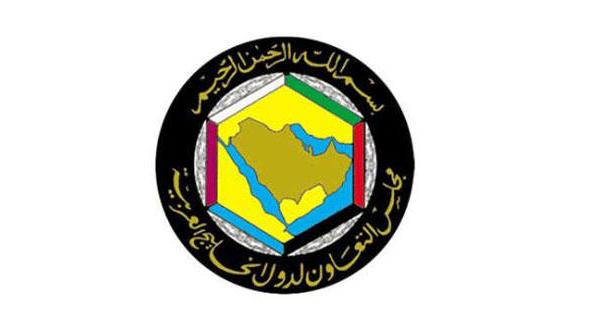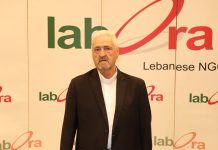Iran’s sprawling influence drums up sectarian fears in oil-rich Arab neighbors
By SETH J. FRANTZMAN/03/14/2015
DUBAI – In the wake of Israel’s raid on Iraq’s Osirak reactor in 1981, president Saddam Hussein gathered together his top scientists and generals. “You think the mullahs are weak? You think those bearded fanatics will give up? No, they are not weak, they will never give up.” Saddam’s Iraqi army was already a year into what would become an almost eight-year war with Iran. Initial successes had ground it to a halt and now, his nascent attempts to build a nuclear reactor lay in ruins.
His admonition reminds us how the Middle East has been transformed. Whereas once Saddam’s legions were poised inside Iran, today the Islamic Republic’s influence stretches from the Bab al-Mandab straits of the Red Sea to Damascus. The years since Saddam was at the height of his power and acted as a shield for the Gulf states and Saudi Arabia from the power of Tehran have clouded many memories.
Driving down a central avenue last week in Dubai, United Arab Emirates, a local Emirati recalled the 2011 protests in Bahrain – in which the majority Shi’ite population seemed on the verge of overthrowing the Sunni monarchy. It worried people. “We see what’s happening in the region… How did Hezbollah come to control Lebanon, it was not a Shi’ite country 50 years ago?” asked the local man.
It is widely felt that there has been a quiet Shi’ite demographic increase in some countries in the region, a fact attributed less to religious differences than a quiet program to expand the community’s influence and serve as an Iranian proxy. Indeed, when Iranian presidential adviser Ali Younesi said, “All of the Middle East is Iranian” on Tuesday, it merely bolstered the feeling of vulnerability.
On March 4, the headlines in the English-language daily Gulf News described the Iranian takeover of Yemen. “Houthis drove the Western- and Saudi-backed government out of Yemen’s capital… prompting Iranian officials to boast that they now occupied ‘four Arab capitals.’” Iranian Revolutionary Guard Corps Gen. Qassem Soleimani is overseeing Iraq’s offensive against Islamic State.
With the second-largest economy in the Arab world, the UAE is not just sitting atop oil wealth, but has made massive investments in infrastructure and attempts to diversify the sectors that feed its GDP. Part of this project has meant that Dubai, which has the largest population of the seven monarchies that make up the Emirates, has been developing economic free zones, special areas for universities and hi-tech.
A multi-day tour of the country and a visit to the Emirates Airline Festival of Literature provided a vision of what they are trying to accomplish in the Gulf. With some 71 million passengers estimated to fly through Dubai’s airport this year, the Gulf has become a major center of culture, trade and tourism in the region. But how is that squared with the fact that not so far away in Iraq, Islamic State is busy demolishing the remains of ancient Middle Eastern civilizations? Iran is expanding its influence. Can the vision of the Middle East presented in Dubai, with its conspicuous consumerism and massive diversity (85 percent of Dubai’s residents are non-Emirati, with expats from all over the world) blunt the darker sectarian visions prevalent in other states, or the corruption and chaos reigning in other places? This question was on the mind of Mohamed al-Rumaihi, a professor of sociology at Kuwait University, in an article published on March 7. “The common wisdom in the region is not to rely on Western allies… we have to take care of our own problems ourselves.”
He argued that Egypt should form a pact with Saudi Arabia and the Gulf states. “This is what is needed to confront not only the terrorist groups, but also attempts by Tehran to extend its hegemony over the region… The Gulf states suspect that this kind of agreement [with Iran] alluded to by US officials probably will be at the cost of their interests and national well-being.”
The Gulf News editorial that same day demanded the US give the Gulf Cooperation Council clarification on any agreement and provide transparency. It is of particular interest that the Gulf has been watching the Iran negotiations in Washington with the same keen eye as Israel, but without any of the bluster. When one looks at the role Iran has played in Iraq, Yemen, Syria and Lebanon, it is clear Tehran has not attempted to build up these states and make them economically viable. The opposite: It has no interest in seeing a reborn Iraq.
Whereas the UAE is launching a National Strategy for Empowerment of Emirati Women and women celebrated International Women’s Day by completing a 140-km. trek, in other countries the situation is bleak.
Hadani Ditmars, an Iraqi woman, said on Al Jazeera: “Iraqi women are arguably the first to see their status go from one of the highest in the region to one of the lowest, in less than two decades.”
So why isn’t the UAE speaking up more about showing itself as a model for the region? Obviously, it is a model that cannot be replicated in total because its construction boom has relied on importing cheap labor from abroad; millions of these immigrants stay on, some having generations of families, with no path to citizenship.
One Chinese immigrant explained, “In Dubai there is no politics, so shopping is what people do to feel important.” That may be partly true, but at the Emirates Festival of Literature, where some 30,000 people attended five days of panels and meetings with authors, renowned Egyptian feminist author Nawal el-Sa’adawi told the crowd it is the duty of creative people to critique government policies. “If I was in the UAE, I would be against the government – just as I was against the government in Egypt.” She received thunderous applause.
Yet there is widespread reticence to put UAE foreign policy in the international spotlight. A local academic spoke angrily about the Iran issue. “It destabilized countries around the Gulf. On the one hand, you have Iran and on the other, you have Islamic State; it’s hard to say which is the lesser of two evils… We have always been a peace-seeking state, since the time of the late Sheikh Zayed [the first leader of the UAE].”
But since last year, the UAE has been a key ally in the bombing campaign against Islamic State – by one account, flying more combat sorties than any other of the four Arab participants. Given the forward-thinking vision of the UAE leaders, the hi-tech and business orientation of the country, and its shared fears of Sunni extremists and Iran, it would seem in Israel’s best interests to rekindle relations with the Gulf state.
The UAE’s view? In January 2014, Dubai’s ruler Sheikh Mohammed bin Rashid al-Maktoum said that trade with Israel could come after a peace deal is signed. “We will do everything with Israel, we will trade with them and welcome them, but sign the peace process [with the Palestinians],” he told the BBC




















